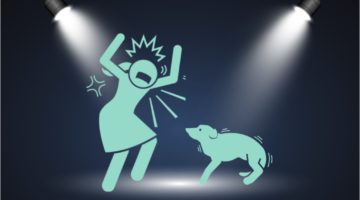Dogs and Sleeping Patterns
While I absolutely love having my dogs sleep with me, it can sometimes be a bit disruptive. They tend to move around a lot, twitch, and even bark in their sleep. Plus, some nights they’ll leave and then come back to bed multiple times.
However, each of these behaviours has a purpose, deeply ingrained in their genetic makeup. In a previous article titled ‘It’s Ok to Sleep with Your Dog,‘ I discussed why dogs are drawn to sleeping alongside their human companions. As social animals, dogs naturally seek closeness with their community for protection, companionship, and emotional support.
Sleeping with others also serves additional purposes:
- Providing a sense of safety and protection, fostering deeper relaxation,
- Enhancing bonding and strengthening relationships through close proximity, and
- Helping conserve body heat, especially in colder environments.
On average, dogs sleep for about 12-14 hours a day, though this can vary depending on their age, health, and activity levels. Unlike humans, who typically sleep in a single block of time (monophasic sleep), dogs are polyphasic sleepers, meaning they sleep in several short blocks over a 24-hour period. This means they may wake up periodically throughout the night, leading to movement and shifts in sleeping positions.
When dogs twitch or bark during sleep, they are likely in the REM (Rapid Eye Movement) sleep stage, where they act out their dreams and process their experiences from the day. Sometimes, these dreams may evoke fear or discomfort, similar to our own reactions. In such cases, providing calm and comforting reassurance can help them feel safe again, fostering a deeper sense of security. However, I don’t recommend waking them from their REM sleep as it’s best to let them process their experience fully without interruption.
Ultimately, ensuring both you and your dog receive restful and adequate sleep is crucial for physical and mental well-being. Quality sleep facilitates emotional processing, supports overall health, and enhances cognitive function. If both you and your dog find comfort in sleeping together, it can be a rewarding experience that strengthens your bond and promotes a sense of security and contentment.




